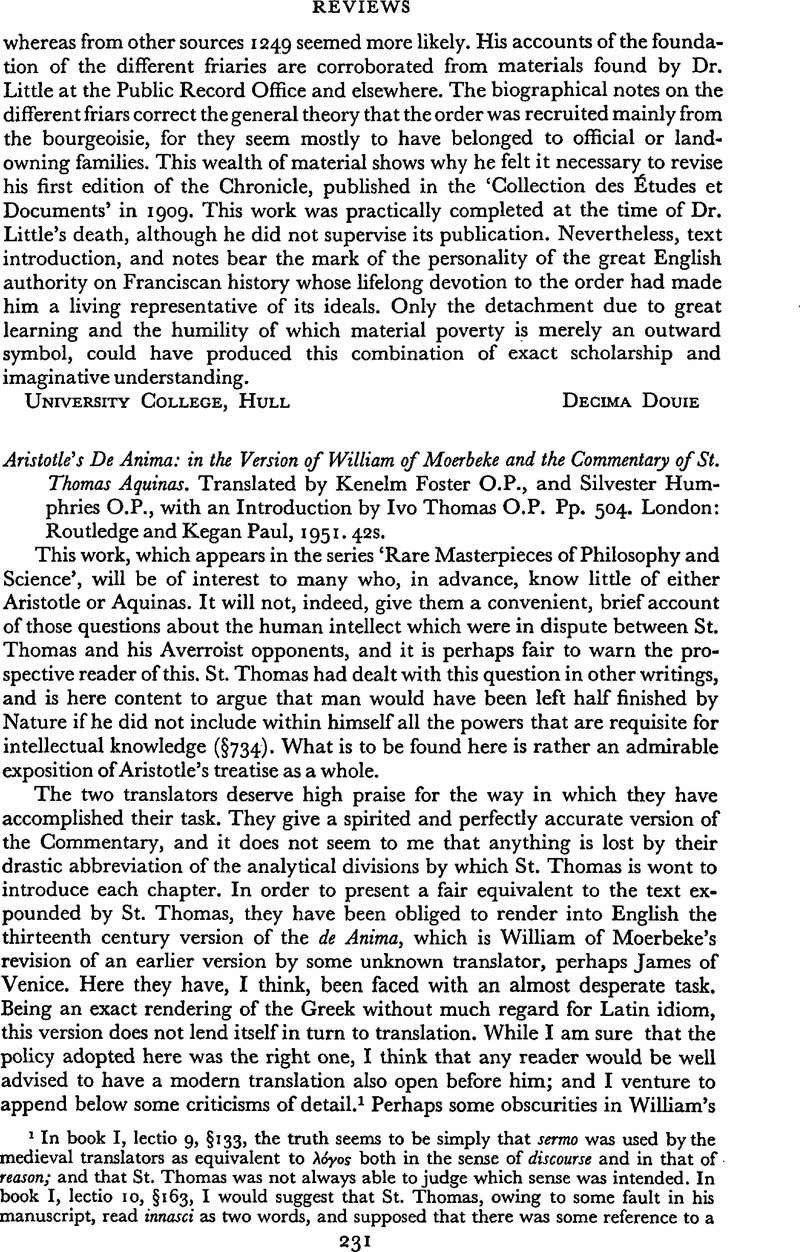No CrossRef data available.
Article contents
Aristotle's De Anima: in the Version of William of Moerbeke and the Commentary of St. Thomas Aquinas. Translated by Kenelm FosterO.P., and Silvester HumphriesO.P., with an Introduction by Ivo Thomas O.P. Pp. 504. London: Routledge and Kegan Paul, 1951. 42s.
Published online by Cambridge University Press: 25 March 2011
Abstract

- Type
- Reviews
- Information
- Copyright
- Copyright © Cambridge University Press 1952
References
1 In book I, lectio 9, §133, the truth seems to be simply that sermo was used by the medieval translators as equivalent to λγος both in the sense of discourse and in that of reason; and that St. Thomas was not always able to judge which sense was intended. In book I, lectio 10, §163, I would suggest that St. Thomas, owing to some fault in his manuscript, read innasci as two words, and supposed that there was some reference to a theory whereby the intellect was found in process of birth, i.e. was gradually developed from inferior powers and would continue to evolve when separated from the body. In book III, lectio 7, intus apparens enim prohibebit extraneum et obstruct, it appears to me that William understood the Greek correctly and meant extraneum to be nominative, and subject of the sentence. His order of words is unnatural in Latin, but it should be remembered that he rarely alters the Greek order. In book I, §49, the words ‘species’ and ‘specific number’ might lead a modern reader astray. Would it not be better, in this account of the doctrine of Plato, to say Ideas and ideal number?




